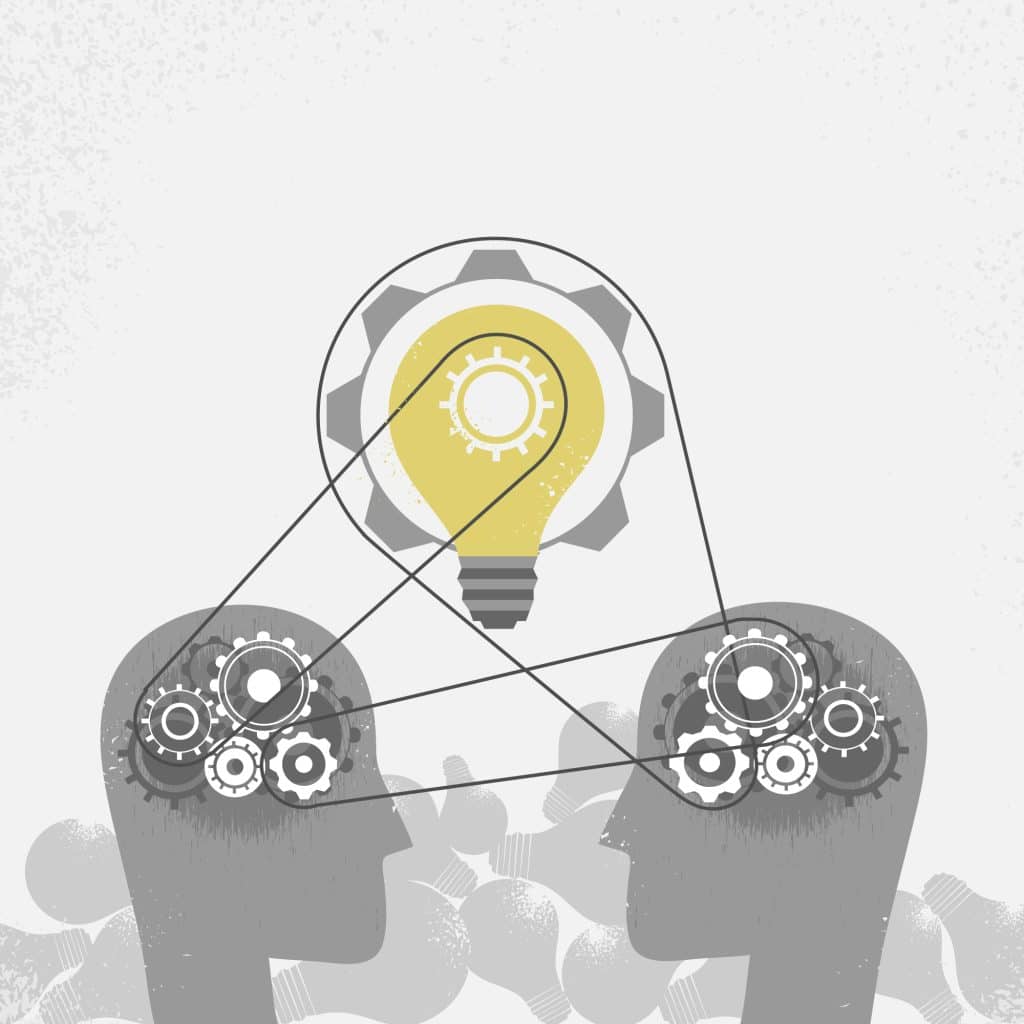Reflective Thinking Develops New Perspectives
Oliver Cooper August 1, 2025
In today’s fast-paced world, we often prioritize action over introspection. The demands of modern life can make it difficult to slow down and reflect on our experiences. However, reflective thinking—the practice of thinking critically about past experiences—has emerged as a powerful tool for personal and professional growth. By taking time to reflect on our actions, thoughts, and decisions, we gain new perspectives that can significantly improve our lives.
In this article, we will explore how reflective thinking can develop new perspectives, offering insight into why it’s a crucial habit for self-improvement. Whether in the workplace, in relationships, or for mental well-being, reflective thinking helps individuals better understand themselves and navigate the world around them. Through engaging with recent trends and scientific research, we’ll highlight how self-reflection enhances decision-making, increases emotional intelligence, and fosters creativity.

The Science of Reflective Thinking
What is Reflective Thinking?
Reflective thinking is the process of carefully analyzing and evaluating one’s thoughts, actions, and experiences. This practice involves reviewing past events, acknowledging what worked and what didn’t, and using these insights to shape future decisions. Rather than simply recalling events, reflective thinking asks us to deeply engage with the meaning behind those events and consider their broader impact.
The concept of reflective thinking has its roots in critical thinking and metacognition (the awareness of one’s own thinking process). Educational psychologist John Dewey, one of the pioneers in this field, emphasized that reflective thinking is essential for learning and personal growth. Dewey believed that reflection allows individuals to make better sense of the world and become more capable of dealing with challenges.
The Cognitive Benefits of Reflective Thinking
Reflective thinking has numerous cognitive benefits, particularly in fostering critical thinking and problem-solving skills. Research from The University of California (2023) reveals that individuals who engage in regular reflection are better at assessing situations objectively, identifying patterns, and generating new ideas. By reviewing their past actions, people can learn from their mistakes and develop strategies for avoiding similar pitfalls in the future.
Furthermore, reflection enhances cognitive flexibility—the ability to think about multiple solutions to a problem and adapt to changing circumstances. This ability is particularly important in today’s fast-changing work environments, where adaptability and innovation are key to success.
How Reflective Thinking Develops New Perspectives
1. Encouraging Self-Awareness and Emotional Intelligence
Self-awareness is one of the most important outcomes of reflective thinking. When we reflect on our actions and reactions, we gain a deeper understanding of our emotions, motivations, and values. This self-awareness allows us to recognize patterns in our behavior and better understand how we influence and interact with others.
This insight leads to greater emotional intelligence (EQ)—the ability to manage one’s emotions and understand those of others. EQ is a crucial skill in both personal and professional settings, as it helps individuals navigate relationships, communicate effectively, and manage conflict.
In the workplace, employees with high EQ are often more successful in leadership positions. According to a study by TalentSmart (2024), 90% of top-performing leaders have high emotional intelligence, which allows them to make better decisions and cultivate positive work environments. Reflective thinking supports this development by encouraging individuals to evaluate their emotional responses and improve how they manage them.
2. Improving Decision-Making Skills
Reflective thinking also enhances decision-making. When we reflect on past decisions, we can better understand the factors that influenced our choices, including biases, emotions, and assumptions. This increased awareness allows us to make more informed, deliberate decisions in the future.
According to Psychological Science (2023), individuals who engage in self-reflection are less likely to make impulsive decisions and more likely to consider alternative perspectives before choosing a course of action. Reflective thinking allows us to weigh pros and cons, analyze outcomes, and anticipate potential consequences, leading to better decision-making in both personal and professional contexts.
3. Fostering Creativity and Innovation
Reflective thinking doesn’t just improve cognitive function—it also boosts creativity. When we take the time to reflect on past experiences, we open ourselves up to new possibilities and insights. This process helps us approach problems from different angles and develop innovative solutions.
In a study by Harvard Business Review (2024), researchers found that individuals who engage in reflective practices are more likely to come up with creative ideas in response to challenges. By stepping back from the pressures of the moment, reflective thinkers create mental space to consider new perspectives and explore unconventional solutions.
4. Enhancing Personal Growth and Development
Reflective thinking allows individuals to track their progress, set new goals, and make adjustments when necessary. It acts as a self-assessment tool, helping people measure their growth and stay aligned with their long-term aspirations.
In a report by McKinsey & Company (2023), it was found that professionals who regularly engage in self-reflection are more likely to experience higher levels of job satisfaction, increased productivity, and improved career advancement. This is because reflection helps individuals stay motivated and focused on their goals, while also identifying areas for improvement.
The Role of Reflective Thinking in Professional Development
1. Reflection in Leadership
Leaders who regularly engage in reflective thinking are better equipped to handle complex challenges, foster innovation, and lead with empathy. Reflective leaders are able to learn from their mistakes, adapt their leadership styles, and make more informed decisions for their teams.
A 2023 study from The Center for Creative Leadership found that leaders who practice self-reflection are more likely to foster a culture of continuous improvement, where team members are encouraged to innovate and take calculated risks. Reflective thinking helps leaders identify their blind spots, refine their approach, and connect with others on a deeper level.
2. Reflection and Career Growth
Reflective thinking is also a key driver of career development. It helps individuals identify their strengths, skills, and values, which can inform decisions about career paths, job changes, and promotions. By engaging in regular reflection, professionals are able to assess whether their current roles align with their long-term career goals.
For instance, a professional in a stagnant role may reflect on their lack of career growth and decide to pursue new challenges or skill development. This proactive approach helps them avoid career stagnation and promotes continuous growth. According to Forbes (2023), professionals who engage in regular career reflection are more likely to experience upward mobility in their careers.
How to Cultivate Reflective Thinking
1. Make Time for Regular Reflection
The first step in cultivating reflective thinking is to dedicate time to it regularly. Whether through journaling, meditation, or quiet contemplation, creating space for reflection helps build this habit. Set aside time each day or week to reflect on your experiences, challenges, and goals.
Practical Tips:
- Daily Journaling: Write about your experiences, feelings, and what you’ve learned each day.
- Weekly Reflection Sessions: Set aside 20-30 minutes each week to review your accomplishments and challenges.
2. Ask Thoughtful Questions
When reflecting, it’s important to ask the right questions. These questions help you gain deeper insights and challenge your assumptions. Here are a few questions to guide your reflection:
- What went well today, and what could I improve?
- How did I respond emotionally to challenges, and how can I handle them differently next time?
- What are my current goals, and how aligned are they with my values?
- What have I learned from recent decisions, both positive and negative?
3. Seek Feedback from Others
Feedback from colleagues, mentors, or friends can provide valuable external perspectives that enhance your reflection. Regularly ask for constructive feedback and use it to adjust your approach, behavior, and strategies.
4. Make Reflection a Habit
Consistency is key to making reflection a transformative practice. Set regular times for reflection, and incorporate it into your daily or weekly routine. Over time, it will become a natural part of your personal and professional development.
Conclusion
Reflective thinking develops new perspectives by enhancing self-awareness, improving decision-making, fostering creativity, and supporting personal growth. Whether you’re navigating career challenges, making important decisions, or leading others, the ability to reflect thoughtfully on your experiences is an invaluable tool for success.
By setting aside time for reflection, asking thoughtful questions, and seeking feedback, you can gain new insights, adapt to change, and continue to grow both personally and professionally. In today’s fast-paced world, making reflective thinking a habit is essential for achieving long-term success and fulfillment.
Reference
- How Self-Reflection Benefits Your Mental Health, https://www.verywellmind.com
- Emotional intelligence and reflective thinking: https://pubmed.ncbi.nlm.nih.gov
- Developing Emotional Intelligence through Reflective Thinking: https://everydayspeech.com







